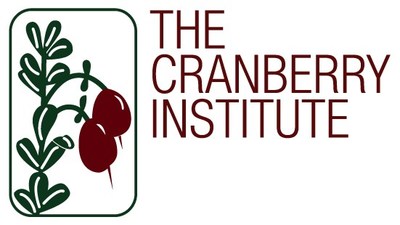Subjects: NPT, SVY
Newly Published Feeding Trial Showed Cranberries Reduced the Negative Impact of a Low Fiber, Animal-Based Diet on Gut Health
CARVER, Mass., Nov. 13, 2018 /PRNewswire/ -- In a recently published feeding trial in The Journal of Nutritional Biochemistry, scientists investigated the potential protective effect of cranberries on the gut microbiome with an animal-based diet. Consuming cranberry compounds modified the impact of an animal-based diet in study participants by restoring a healthier microbiota profile. The addition of whole cranberry powder lessened potentially carcinogenic secondary bile acids and blunted the decline in beneficial short chain fatty acids (SCFA) in the gastrointestinal (GI) tract.

"Among the 20 most commonly consumed fruits in the American diet, we chose to investigate cranberries and the gut microbiome as they are among the fruits with a high total phenol content," said study author, Dr. Oliver Chen. Dr. Chen further explained the importance of the investigation because the gut microbiota is a key protector for human health. "An imbalance can increase the risk for several chronic diseases, including atherosclerosis, hypertension, kidney disease and type 2 diabetes," added Dr. Chen. "Identifying foods ? like cranberries ? that can help shape and support a healthier gut microbiome could have a remarkable impact on public health."
An international team led by researchers from the Jean Mayer USDA Human Nutrition Research Center on Aging at Tufts University, conducted a randomized, double-blind, crossover study of 11 healthy subjects (7 males, 4 females) aged 25 to 54 years with normal digestive function. A control diet, comprised of meats, dairy products and simple sugars was compared to a treatment diet ? the control diet plus 30 grams of freeze-dried whole cranberry powder ? for two, 5-day periods with a 2-week washout in between. The cranberry diet showed fewer potentially negative microbiota changes than the control diet phase. It appeared that adding cranberries to the control diet reduced the rise in secondary gut bile acids that have been associated with colon and GI cancer. Cranberries also lessened the drop in beneficial SCFA thought to help maintain healthy GI cells. Overall, the treatment diet suggested that cranberry constituents may help support a healthy gut microbiome.
"On behalf of the Cranberry Institute and cranberry growers and handlers, it is exciting and rewarding to see new diverse health research about the potential benefits of cranberry consumption," stated Terry Humfeld, executive director of the non-profit Cranberry Institute ? an organization established for cranberry research and education. "Scientists continue to dedicate their studies to exploring the inherent value of eating cranberries, so as an industry, we will proudly continue to support their efforts."
Grants, sponsors and funding sources: This research was funded by Cranberry Institute and United States Department of Agriculture (USDA) (1950-51000-087) and support for this project was provided by the Cranberry Marketing Committee USA, an instrumentality of the United States Department of Agriculture, Agriculture Marketing Service (USDA/AMS), that administers the Cranberry Marketing Order, 7 Code of Federal Regulations 929, as authorized under the Agricultural Marketing Agreement Act of 1937, as amended. Author, Jose Rodríguez-Morató acknowledges funding from European Union's Horizon 2020 research and innovation programme under the Marie Sk?odowska-Curie grant agreement No 712949 (TECNIOspring PLUS) and from ACCIO.
About the Cranberry Institute
The Cranberry Institute is a not-for-profit organization founded in 1951 to further the success of cranberry growers and the industry in the Americas through health, agricultural and environmental stewardship research as well as cranberry promotion and education. The Cranberry Institute is funded voluntarily by Supporting Members that handle, process, and sell cranberries. Supporting Members are represented in national and international regulatory matters and research efforts are done on their behalf. For more information about the Cranberry Institute, along with the health benefits of cranberries and current scientific research, visit www.CranberryInstitute.org.
Contact: | Christina Deecken |
Pollock Communications | |
Email: [email protected] | |
Phone: (212) 941-1414 |
SOURCE The Cranberry Institute
These press releases may also interest you
|
News published on and distributed by:



